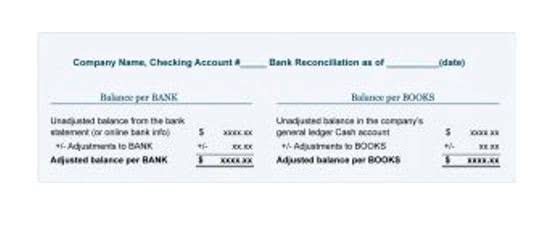
Whether your business is large or small, you must have an understanding of your accounting needs. As a business leader, you should have a good idea of which professionals best suit the needs of your company. There are critical differences in job growth and salaries between the two. Growth for accountants and auditors is expected to continue for the next several years.

Understanding Bookkeeping vs. Accounting
The single-entry bookkeeping method is often preferred for sole proprietors, small startups, and companies with unfussy or minimal transaction activity. The single-entry system tracks cash sales and expenditures over a period of time. If you’re new to business, you may be wondering about the importance of bookkeeping. Whether you outsource the work to a professional bookkeeper or do it yourself, you’ll be able to reap a variety of benefits. Because the barrier to entry is higher, accountants often make more than bookkeepers and will be more expensive if your business is looking to hire one. According to the Bureau of Labor Statistics, the median pay for an accountant was $73,560 annually, at $35.37 per hour.

What Are the Roles of a Bookkeeper?

Double-entry bookkeeping is the practice of recording transactions in at least two accounts, as a debit or credit. When following this method of bookkeeping, the amounts of debits recorded must match the amounts of credits recorded. This more advanced process the terms accounting and bookkeeping are interchangeable. is ideal for enterprises with accrued expenses. Unlike accounting, bookkeeping zeroes in on the administrative side of a business’s financial past and present. Accounting, on the other hand, utilizes data from bookkeepers and is much more subjective.
- They must be diligent, meticulous, and accurate as their job is a vital preliminary stage of the accounting process.
- An accountant offers strategic guidance on financial management, tax planning, and regulatory compliance.
- Erika Rasure is globally-recognized as a leading consumer economics subject matter expert, researcher, and educator.
- Growing a business requires an increasing number of accounting transactions.
- For those looking to climb higher, becoming a Certified Public Accountant (CPA) is a common goal.
- These complementary allies will help keep track of your business expenditures, income, and profits as well as set you up for success once tax time rolls around.
- It is important to possess sharp logic skills and big-picture problem-solving abilities, as well.
Explore what you can do with QuickBooks
- Their expertise ensures compliance with various financial regulations and aids in making informed financial decisions that impact the company’s long-term success.
- The best bookkeeping software for small businesses depends on many factors.
- At this stage, both bookkeepers and accountants can be invaluable to your business.
- The BLS notes that job growth for accountants should track fairly closely with the broader economy.
- Accountants then translate the info into charts, equations, and predictions.
- Only CPAs, tax attorneys, and “Enrolled Agents” represent a taxpayer in audits and investigations with the IRS.
Intuit accepts no responsibility for the accuracy, legality, or content on these sites. Whether you’ve started a small business or are self-employed, bring your work to life with our helpful advice, tips and strategies. For resources on how to use Nextdoor to stay connected with your local customers, pertinent news affecting businesses, and more, follow us at @nextdoorbusiness on Facebook.

Understanding how bookkeepers and accountants contribute to your business is important for effective financial management. Whether operating a nimble startup or a sprawling enterprise, these roles adapt to meet your company’s needs. Accountants prepare financial https://www.bookstime.com/ statements, assist with compliance, and help business owners understand the financial implications of their decisions. Accounting goes a step further by analyzing, interpreting, summarizing, and reporting the financial data collected by bookkeeping.
As you’re planning your budget for the following year, your accountant will be the one who can provide analysis and suggestions to ensure your company is in the best fiscal shape to succeed. And, of course, all companies need to file taxes, which can become extremely complicated as your business grows. A trusted accountant can help guide you through that process and help handle any audits that may arise. It’s helpful to understand the different roles of a bookkeeper and an accountant so you can utilize them appropriately as your business grows. Although they both have a hand in your company’s finances, their skill sets and purposes vary.
On the other hand, skilled accounting relies on meticulous bookkeeping to provide actionable business insights. Some of the key tasks for accountants include tax return preparation, conducting routine reviews of various financial statements, and performing account analysis. Another key responsibility for accountants includes conducting routine audits to ensure that statements and books are following ethical and industry standards.
